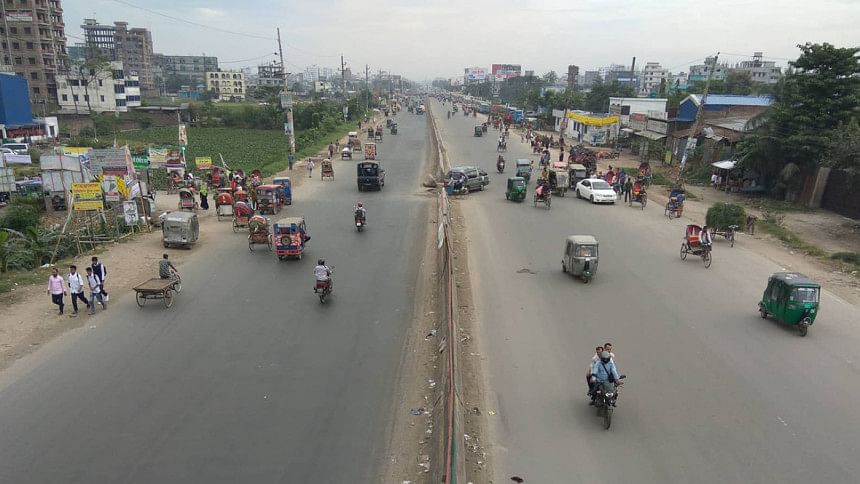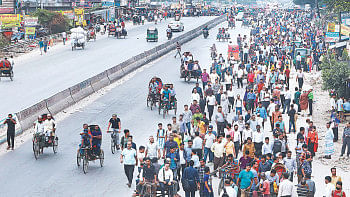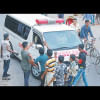Passengers’ body requests ending transport strike

A passengers’ welfare body today requested transport owners to withdraw their strike.
Bangladesh Jatri Kalyan Samity placed the appeal today upholding the sufferings of commuters countrywide – as the transport strike rolled on to day two in Dhaka and elsewhere.
The organisation’s Secretary General Mozammel Hoque Chowdhury alleged that some transport workers harassed people by smearing burnt oil on people during the strike.
Ambulances, CNG-driven auto-rickshaws, private cars and even motorcycles were not spared, he alleged. “This took place in Dhaka city and elsewhere in the country.”
He urged the transport workers to solve problems through discussion with the government.
HOW DID THE PEOPLE SUFFER?
For two consecutive days, the transport workers blocked all forms of transports – public buses, long haul buses, private cars, motorcycles and auto-rickshaws.
Several reported incidents took place where passengers were forced to get down from vehicles and walk to their destinations.
Harassments were also reported from all corners. Drivers who dared to defy the strike were physically assaulted. Some of them were also smeared in black oil.
Passengers were also not spared from harassment. Even schoolgirls in uniforms were smeared in black oil by the agitators in Narayanganj yesterday.
WHY THE STRIKE?
The 48-hour strike was enforced to force the government to bring amendments to the recently passed Road Transport Act-2018.
The demands include making all offences under the Road Transport Act “bailable”, cancellation of the provision that allows a worker to be fined Tk 5 lakh for involvement in a road accident, changing the minimum educational qualification required to obtain driving licences from class-VIII to class-V, and ending harassment by police on roads.
WHAT DO WE KNOW ABOUT THE ROAD TRANSPORT ACT?
On September 19, the parliament passed the much-anticipated Road Transport Act-2018 amid criticisms over lenient punishments for deaths caused by reckless driving.
According to the law, if anybody causes an accident by reckless and negligent driving, and kills or injures someone seriously, such person would face a maximum sentence of five years in jail or a fine of Tk 5 lakh or both.
However, if it is found that a driver has deliberately killed anyone or not averted a killing in a road accident, the matter would fall under either section 302 (murder) or 304 (culpable homicide) of the Penal Code, according to the explanation of the proposed act by the law minister.
The maximum punishment under section 302 of the Penal Code is the death penalty while it is life imprisonment under section 304.
Asked about the public suffering caused due to the strike, the general secretary of the federation said that they are not responsible for the suffering, rather it is government who is responsible.

 For all latest news, follow The Daily Star's Google News channel.
For all latest news, follow The Daily Star's Google News channel. 









Comments